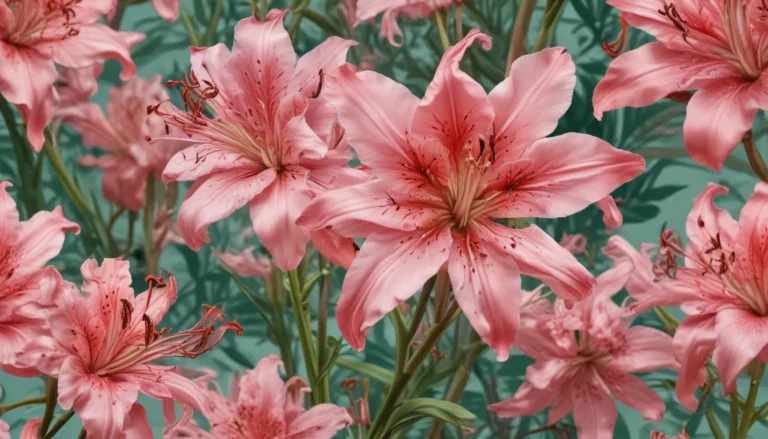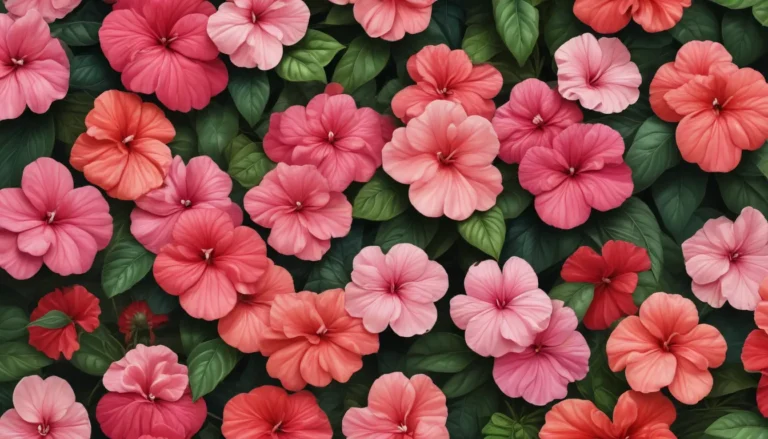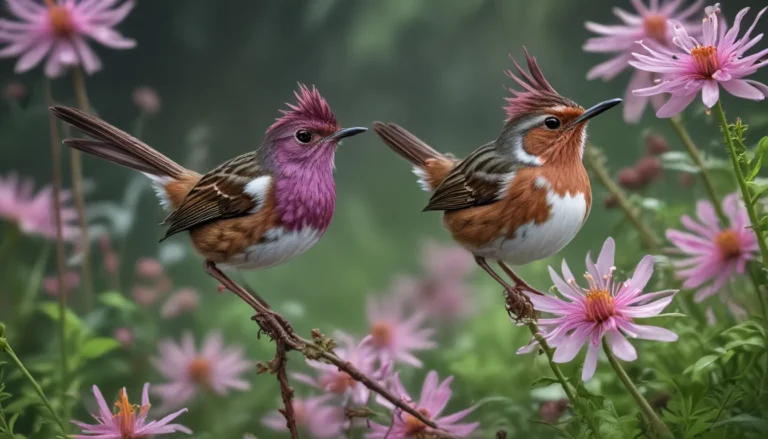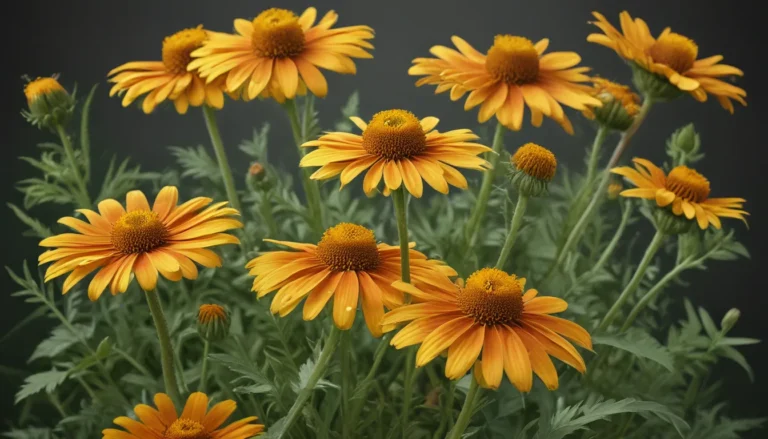The pictures we use in our articles might not show exactly what the words say. We choose these pictures to make you interested in reading more. The pictures work together with the words but don’t take their place. The words still tell you the important facts.
Campanula, also known as bellflowers, are not just ordinary plants – they are a fascinating group that captivates the hearts of gardening enthusiasts worldwide. With their delicate bell-shaped flowers, graceful foliage, and incredible beauty, campanulas add a touch of elegance to any garden or landscape. In this article, we will delve into nine extraordinary facts about campanulas that will deepen your understanding and appreciation for these enchanting plants. Whether you are a seasoned gardener or simply intrigued by the beauty of flowers, let’s embark on a journey to uncover the hidden wonders of campanulas.
Key Takeaways:
- Campanula, also known as the Bellflower, symbolizes gratitude, everlasting love, attracts bees and butterflies, and has medicinal properties, making it a fascinating and beneficial addition to any garden.
- With over 300 species, Campanula’s resilience, enchanting aroma, and ability to naturalize make it a low-maintenance yet stunningly beautiful flower that captivates hearts and minds worldwide.
The Symbolic Meaning Behind Campanula
Did you know that Campanula, also known as the Bellflower, holds symbolic meaning beyond its beauty? Its name derived from the Latin word “campana,” which means bell, represents gratitude, affection, and everlasting love. These delicate bell-shaped blooms bring good luck and protection to those who possess them, carrying with them a hidden message of beauty and love wherever they go.
The Vast Variety of Campanula Species
Campanula is a diverse genus boasting around 300 species, from perennials to annuals and biennials. Each species comes in different shapes, sizes, and colors, ranging from shades of blue, purple, pink, to white. With its unique charm and variety, Campanula is a favorite among gardeners and flower enthusiasts worldwide, offering endless possibilities for garden designs and creative arrangements.
The Medicinal Properties of Campanula Roots
The roots of Campanula have long been valued for their medicinal properties, used in traditional herbal medicine to treat respiratory issues, gastrointestinal disorders, among other ailments. With anti-inflammatory and diuretic properties, these roots serve as valuable ingredients in herbal remedies, showcasing the hidden healing powers of these enchanting plants.
The Resilience of Campanula in Challenging Environments
Campanula is renowned for its adaptability and resilience, thriving in various environments from mountain slopes to coastal regions. These hardy plants not only endure harsh conditions but also continue to bloom beautifully, showcasing their strength and endurance in the face of adversity. Their ability to persevere makes them a symbol of resilience and grace in the natural world.
The Attraction of Bees and Butterflies to Campanula
Bees and butterflies are irresistibly drawn to the enchanting allure of Campanula flowers, with their nectar-rich blooms acting as magnets for these vital pollinators. By planting Campanula in your garden, you not only enhance its beauty but also contribute to the conservation of these important insect species, creating a harmonious ecosystem in your backyard.
The Intricate Floral Structure of Campanula
One of the remarkable features of Campanula is its intricate floral structure, with bell-shaped blooms that have five petals fused together to create a unique shape resembling a delicate bell or cup. This distinctive structure adds to its visual appeal, making Campanula a standout flower in any botanical arrangement, captivating the eyes and hearts of all who behold it.
The Historical and Cultural Significance of Campanula
Campanula holds historical and cultural significance in various parts of the world, often associated with fairy realms and magical creatures in folklore. Some cultures even used the petals of Campanula as natural dyes for fabrics, showcasing the rich history and cultural importance of these captivating flowers, adding a touch of magic and mystery to their allure.
The Enchanting Aroma of Campanula
Campanula not only captivates with its beauty but also entices with its delightful fragrance, emitting a subtle, sweet scent that permeates the air and adds an extra layer of enchantment to gardens and floral arrangements. The aroma of Campanula is a sensory delight that awakens the senses and brings a touch of magic to any space it graces.
The Campanula’s Ability to Naturalize
Campanula exhibits a unique ability to naturalize in different regions, establishing self-sustaining populations in the wild without human intervention. Once planted, Campanula can spread and thrive, making it an ideal choice for those seeking low-maintenance yet stunningly beautiful flora in their gardens, creating a natural haven for these captivating plants to flourish.
Explore the Enchantment of Campanula
Campanula, also known as bellflowers, are a captivating group of plants with extraordinary features that enchant both garden enthusiasts and lovers of botany. With their delicate appearance, vibrant colors, and unique attributes, campanulas effortlessly enhance any garden or indoor space, bringing a touch of elegance and magic wherever they bloom.
By uncovering the extraordinary facts associated with campanulas, you not only gain a deeper appreciation for their beauty but also unlock the intriguing secrets that make them truly remarkable. Delve into the mysteries of campanulas and embark on a journey into the world of these enchanting plants, exploring their surprising medicinal properties, historical significance, and the astonishing variety of species that make them a true marvel of nature.
Conclusion
Campanula, with its fascinating qualities and remarkable beauty, continues to captivate the hearts and minds of gardening enthusiasts worldwide. From their unique flower shapes to their resilience in challenging environments, campanulas stand out as extraordinary plants that bring joy and wonder to all who encounter them.
Whether you are a seasoned gardener or just starting out, campanulas are a wonderful addition to any collection, offering endless possibilities for creative designs and stunning displays. Embrace the enchantment of campanulas and let their beauty inspire you to create magical garden spaces filled with grace and charm.
FAQs
Q: What are some common varieties of campanula?
A: Some common varieties of campanula include Campanula persicifolia (Peach-leaved bellflower), Campanula lactiflora (Milky bellflower), and Campanula carpatica (Carpathian bellflower).
Q: How do I care for campanula plants?
A: Campanula plants prefer well-drained soil, moderate watering, full sun to partial shade, and regular fertilization during the growing season. Deadheading spent flowers can promote continuous blooming.
Q: Can campanula plants be grown indoors?
A: Yes, certain varieties of campanula can be grown indoors with bright, indirect light and regular watering, keeping in mind their preference for moderate humidity levels.
Q: Do campanula flowers attract pollinators?
A: Yes, campanula flowers attract pollinators such as bees and butterflies, providing them with a vital food source and aiding in pollination.
Q: Can campanula plants be divided and propagated?
A: Yes, campanulas can be divided and propagated by separating clumps in early spring or autumn, creating new plants and rejuvenating older ones.
Q: Are campanulas deer-resistant?
A: While generally considered deer-resistant due to their bitter taste, hungry deer may still browse on campanulas if other food sources are scarce.
Q: Can campanulas be grown in containers?
A: Yes, campanulas can be grown in containers with proper drainage, well-draining potting mix, and sufficient sunlight for optimal growth.
Q: How tall do campanula plants typically grow?
A: The height of campanula plants varies depending on the species and variety, from compact sizes to tall varieties reaching up to three feet.
Q: Are campanula plants poisonous to pets?
A: Campanula plants are not considered toxic to dogs, cats, or other common household pets, but monitoring pets' behavior around new plants is always recommended.
Enchanted by the extraordinary qualities of campanula? Explore more captivating facts about these bellflowers, from their surprising medicinal properties to the astonishing variety of species. Unravel the mysteries behind Canterbury bells and their historical significance, discovering the hidden wonders of these enchanting plants. Join us on a journey into the world of campanula and unlock the secrets that make them truly remarkable.
Was this page helpful?
Our commitment to delivering trustworthy, engaging content is at the core of what we do. Each fact shared on our site is contributed by users like you, bringing a wealth of diverse insights and information. To ensure the highest standards of accuracy and reliability, our dedicated editors meticulously review each submission, guaranteeing that the facts shared are not only fascinating but also credible. Trust in our dedication to quality and authenticity as you explore and learn with us.






